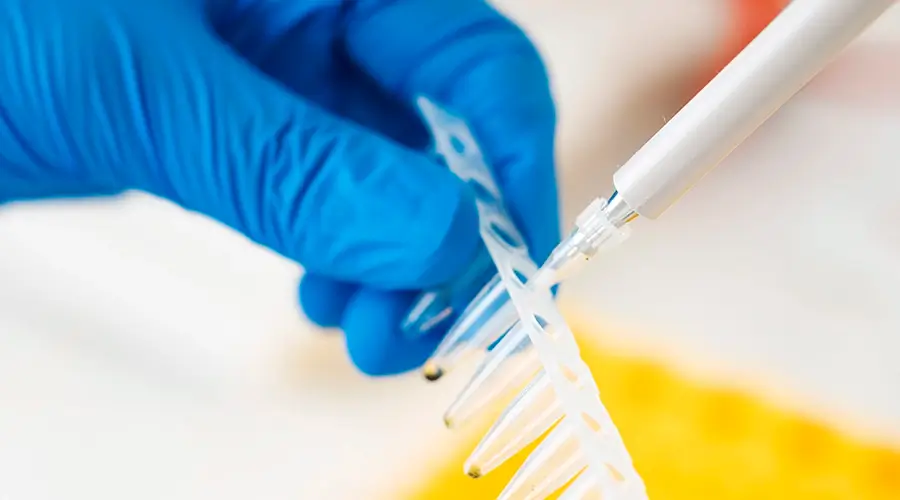Please note, application deadline has now passed.
Thank you to everyone who applied! Keep an eye out in the News for any future open positions in our group.
We’re happy to announce that we’ve got a Researcher position currently open. If you’re interested in the position, please find all the related information below!
(If you’re looking for the post-doc fellow/researcher position that’s also currently open, please see here.)
About the position
This is a two-year extendable position as a Researcher in our group. Both junior and senior applicants are encouraged to submit their applications. The position is part of the newly-established PRIMA Center of Excellence (Precision Immunotherapy Alliance) and focuses on developing safe and efficient CRISPR gene editing protocols for cell therapies. The developed techniques are further used for developing cancer therapies and treating genetic immunological diseases.
Our team works towards building a gene editing platform that can be used to correct patient-specific mutations in ex vivo cell therapies for genetic immune and other rare childhood diseases.
We use high-throughput biology techniques to optimise, develop and understand the CRISPR-Cas9 system that forms the base of the platform, and develop and implement methods to evaluate its safety in a clinical setting. We will use the gene editing technologies for the benefit of the patients in the Nordic hospitals.
NCMM was established in 2008 and is the Norwegian node in the Nordic EMBL Partnership for Molecular Medicine. NCMM is a joint venture between the University of Oslo, Health Region South-East and the Research Council of Norway, and has altogether 11 research groups.
The overall objective of NCMM is to conduct cutting edge research in molecular medicine and biotechnology as well as facilitate translation of discoveries in basic medical research into clinical practice.
Oslo University Hospital is a highly specialized hospital in charge of extensive regional and local hospital assignments. As Scandinavia’s largest hospital, we carry out more than 1.2 million patient treatments each year.
The hospital has a nationwide responsibility for a number of national and multi-regional assignments, and has several national centers of competence.
Oslo University Hospital is responsible for approximately 50 percent of all medical and health care research conducted at Norwegian hospitals, and is a significant role player within the education of a large variety of health care personnel.
Work tasks
The work focuses on developing protocols for efficient and safe non-viral CRISPR-based integration of large (>1kb) cDNA inserts to diverse genomic positions. The target cell types are predominantly T cells and secondarily NK- and hematopoietic stem cells.
We currently have efficient CRISPR protocols for small nucleotide variant knock-in in diverse genomic loci (>80% efficiency in >60% of anonymous blood donors) and these can be used as a base for further protocol development. Once the protocols are in place, they can be applied to various diseases based on your interest and scaled up for GMP-compatible pipelines.
Examples of work tasks include:
- Design and conduct custom CRISPR experiments and screens in high-throughput robotics platforms
- Set up custom Next Generation Sequencing libraries and technologies
- Set up flow cytometry – based immunological assays
- Set up functional assays for immune cells
- Supervise students and technicians in designing and conducting molecular biology experiments
Required qualifications
Researcher position code 1109:
- PhD or equivalent degree
- At least one published first-author paper
- Documented research experience in one or more of the following fields: Immunology or stem cell biology, High-throughput biology and/or Next Generation Sequencing method development
- Fluent oral and written English communication skills
- Experience with any of the following techniques: multi-color flow cytometry, high-throughput biology, immune cell culture and transfection, CRISPR editing in primary cells, or experience with human-mouse xenotransplants
- Experience in genetic analyses
- Python, Perl, R or other relevant programming language skills
Required personal skills
- Organized, meticulous and independent
- Ability to communicate and work in shared multidisciplinary projects
- Willing to supervise students and staff
What we offer
- Salary from NOK 575 400 to NOK 667 700 depending on qualifications
- An exciting, translational project where your strong basic science background can directly benefit our sickest patients
- Upon mutual agreement, the possibility to transition into a permanent researcher position
- Attractive welfare benefits and a generous pension agreement, in addition to Oslo’s family-friendly environment with its rich opportunities for culture and outdoor activities
How to apply?
If this sounds like you, please go ahead and apply – we look forward to hearing from you! Applications are done through the Oslo University Hospital recruitment system, more info here.
If you’d like to ask us anything before applying, please contact us.
Your application must include:
- Cover letter (statement of motivation, summarizing scientific work and research interest)
- CV (summarizing education, positions, pedagogical experience, administrative experience and other qualifying activity)
- Copies of educational certificates (academic transcripts only)
- List of publications
- List of 3 reference persons (name, relation to candidate, e-mail and phone number)
—
Featured image credit: Oda Hveem (Visuello.)
